LGBTQ+ Reality Check: The Logistics of Moving Abroad
Gay realtor Peter Fortner provides some insight into the highs and lows of leaving the US to move abroad to Medellín, Colombia with his husband Kurt Powers. We cover a variety of topics including how to choose a new home country, visas, moving and living expenses, healthcare, and finding community. Regardless of where you move, it’s all info you should consider before making a life-changing decision.
Digital nomads can work remotely from practically anywhere which allows them the flexibility to hop to and from the next exotic city or town on a whim. However, more people in the LGBTQ+ community are thinking about a long-term strategy, such as investing in property to become permanent residents in another country.
Americans have often flocked to Europe to find a new home, but in 2023, places such as Portugal, Germany, and the United Kingdom have seen a 21, 24, and 32 percent decrease in interest to move to the three countries, according to My Dolce Casa, a research blog about moving, living, retiring, and working abroad. Significant changes in visa laws and tax breaks for foreigners are reasons cited for the decline.
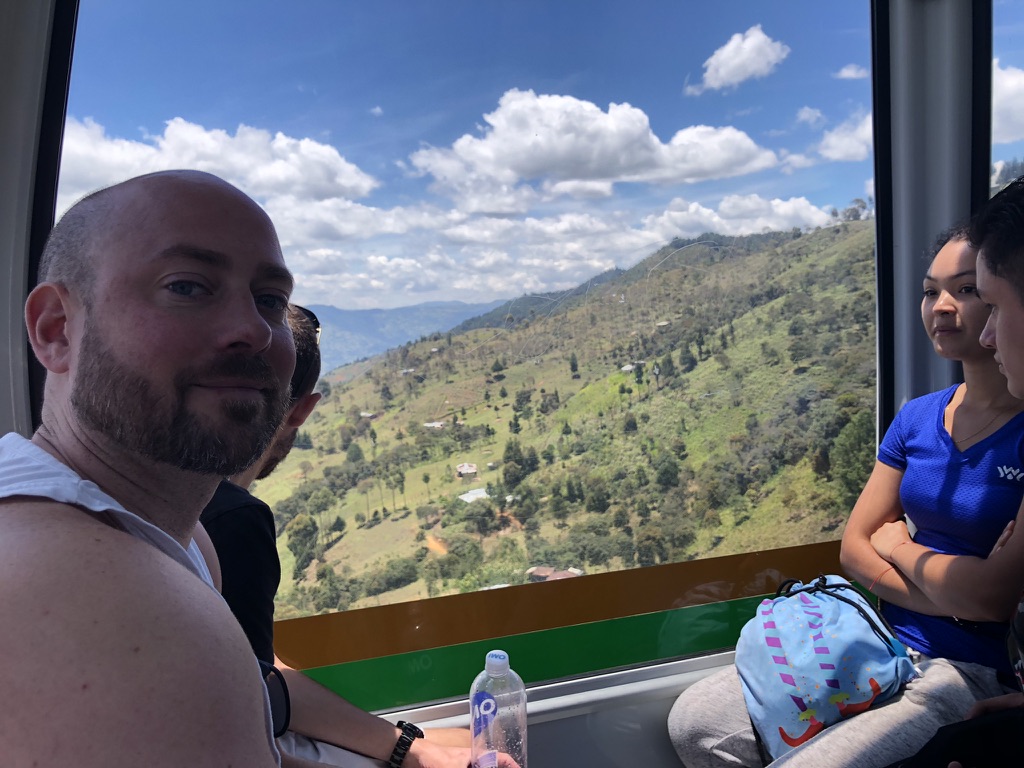
The report also mentions how residents in expensive coastal cities such as San Francisco, New York City, Los Angeles, Miami, and Washington, DC, are driving most of the searches to live abroad. So, we wanted a reality check and an honest account of what it’s really like to move to another country. It’s better to have more information and get all the advice you can before making a big decision to live abroad.
We talked to Peter Fortner, who married his husband Kurt Powers in 2022, but they’ve been together for 12 years. Prompted even more by the COVID pandemic, the couple began to reevaluate their priorities and their busy, rat-race life in Washington, DC, and asked themselves a burning question, “Was this a place they wanted to spend the next 20 years?” It wasn’t, and Fortner and Powers decided to leave the District with the primary focus to purchase a new home in another country.
Choosing the Right Country
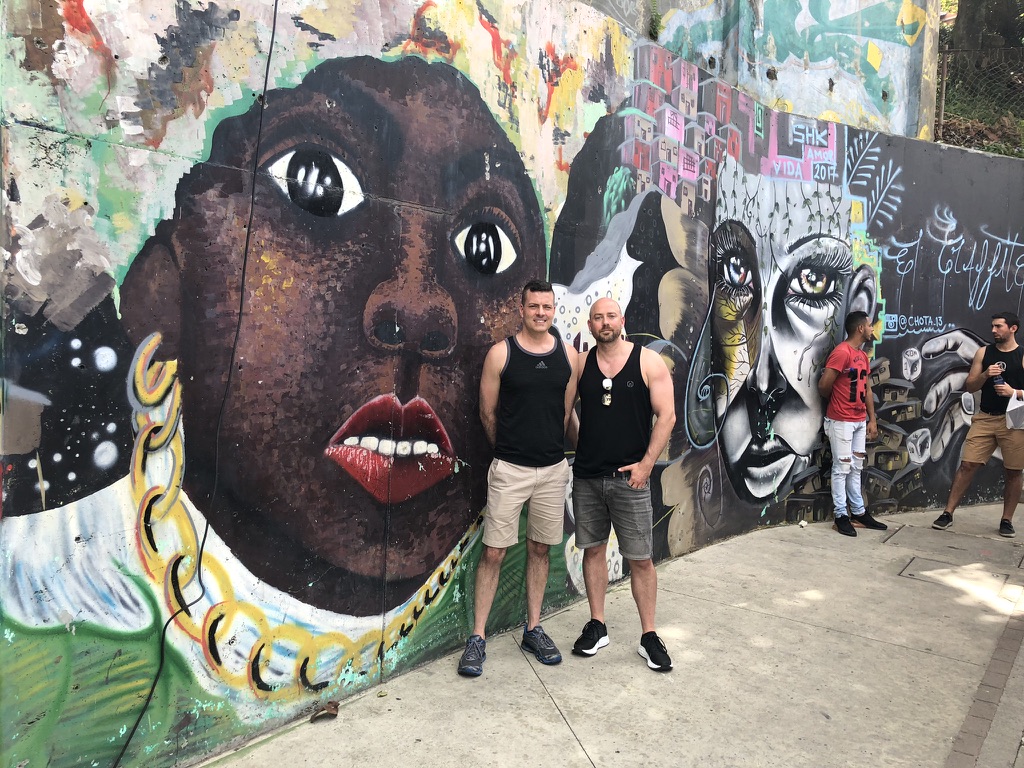
“We wanted a place that had a climate that we were comfortable with. Not a big fan of winter. We wanted to live in a city environment and find a place we could afford. We also wanted a place where we already had people that we knew living there, so that could make the transition easier,” Fortner recalled.
In general, people who identify as LGBTQ+ have to take extra steps when traveling to a new country and this isn’t any different when looking for a permanent residence abroad. We should continue to use recommended resources such as Equaldex, an LGBTQ+ Rights Travel Guide by Country, and make connections with people who know what’s it like to live in your new home country. Facebook groups such as Gay Expats From Around the World and Where Do Gays Retire are helpful resources, and destination-specific expat groups and other social media connections can provide a wealth of information. Don’t be quick to overlook non-LGBTQ+ groups such as the Global Nomads and Expatriates Network and Black Americans Living Abroad or follow people/influencers who are living the expat life.
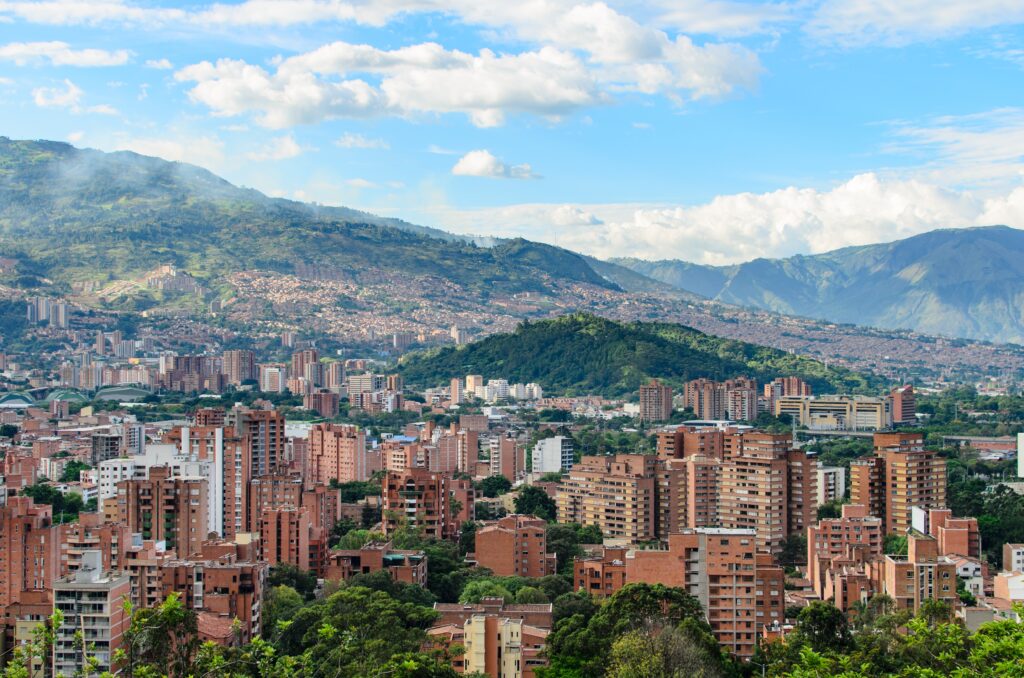
In talking to Fortner, he told us that LGBTQ+-friendly Medellín, Colombia had always been their top choice because of the friendly people, diverse culture, and food, and it wasn’t a beach town like Cartagena, which attracts a lot of tourists. However, he may have arrived at that conclusion in 2005 when he made his first visit to the lush green city located in Aburrá Valley. In 2010, he made a return trip with his boyfriend, now husband, Kurt Powers.
Fortner said, “We had been back multiple times since then. So, there was definitely some back-and-forth travel to get the lay of the land and the neighborhoods. That was very important because our direction was to purchase a home here. Purchasing a home is a big decision. You don’t want to purchase a home in the wrong neighborhood.”
Understanding and Applying for the Right Visas
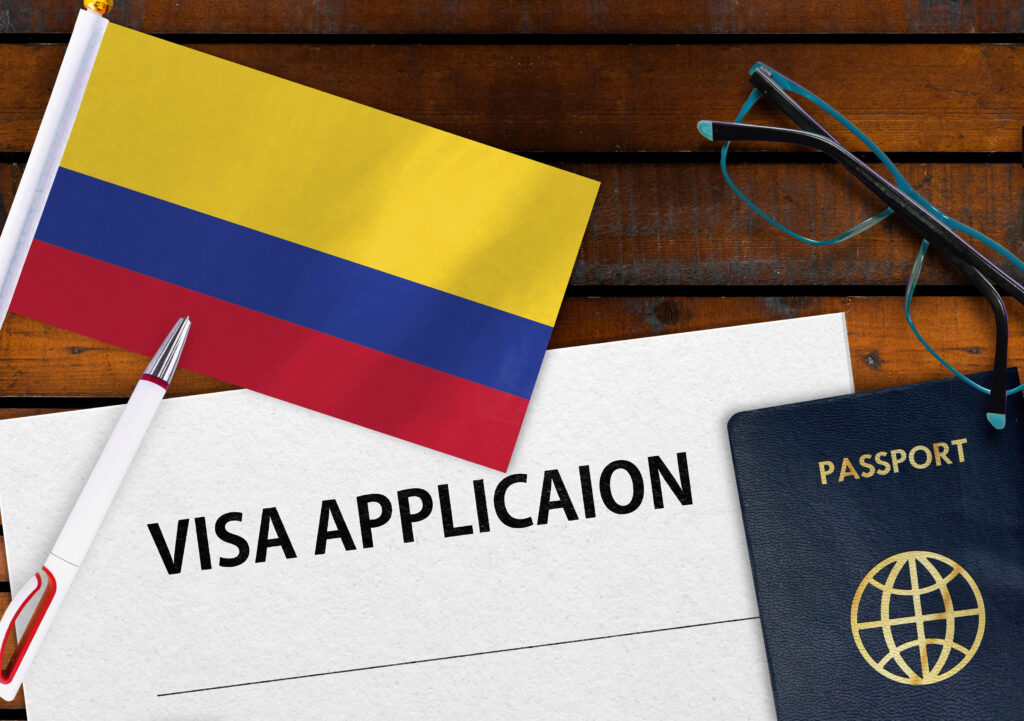
On tourist visas, Fortner and Powers made the move to Medellín in August 2023. Using the equity from their home in Washington, DC, they purchased a $300,000 home that features three bedrooms, a den, and four-and-a-half baths in a gated community with a pool, sauna, racquetball courts, and walking trails. They are working diligently to get a Colombian Investor or Investment Visa, an ongoing process that hasn’t come without obstacles.
“We’ve had to fly in and out of the country to renew our tourist visas while we work on our investor visa, which was an expense we didn’t expect. So, it’s going to take a little bit longer, and it’s going to cost a little bit more than you think it will,” Fortner explains offering a few words of wisdom to others.
Undeterred, the couple wants to get their investor visa and maintain their US citizenship to freely travel between two continents and maybe have a place back in the United States again. But for now, they’re devoted to creating a new life in Colombia. “Our financial circumstances were that we needed to be all in on this to get the property we wanted, and it’s a property that has the potential for Airbnb if it didn’t work out. It’s a property we could see ourselves retiring in 20 years. So you know, it was a big leap of faith,” said Fortner.
Fortner told us that their move racked up about $20,000 to ship their belongings from the US. However, if you’re moving with just one or two suitcases, and spending only a few months to a year in Medellín your moving expenses will be considerably lower. Regarding living expenses, how you want to live dictates your expenses when living abroad, and regardless of your length of time spent abroad, you should have a clear understanding of the different types of visas that a country offers to foreigners.
Fortner explained, “There are work visas that will allow you to stay in the country. You could teach English even if you don’t speak Spanish. Some visas allow you to stay longer than six months as a tourist. There are so many different ways to do it depending on how long you plan on staying or depending on what your end goal is.” Ultimately, if you’re contemplating leaving the US, you should also focus on applying for a specific type of visa depending on your primary goal and desired length of stay – for example, to explore only for six months to a year or to become a permanent resident.
Working Abroad

If you’re not moving to a different country to retire, then assess your monthly income to ensure you can pay day-to-day living expenses in your new home country as well as any normal reoccurring bills you may have (e.g. VPN subscription, phone carrier bill, health insurance, etc.).
Currently, Powers works in IT, which allows him the flexibility to work from anywhere, and Fortner works as a Realtor for TTR Sotheby’s International Realty. He explained, “I still, as a realtor, have clients who I work with in the United States and my team there.” However, he plans to start the new year looking for part-time remote work with US and or Colombian companies to supplement their income.
The speed of the local internet service and your new home county’s time zone should also be assessed when planning your move abroad, especially if you have the option to work remotely. It may be necessary to choose a country that is in the same time zone as your employer or clients to avoid the hassle of scheduling meetings or connecting during random hours during the day or night. For Peter Fortner and Kurt Powers, it works out perfectly because DC and Medellín are in the same time zone which made for a smoother transition to Colombia.
Healthcare and Medical Insurance

In addition to work life, healthcare was just one of many things the couple looked into before moving to Medellín. “We purchased an annual plan and then once we have our Colombian visa, we’ll qualify for Colombian health insurance.” Fortner added, “Before moving, we not only checked into healthcare, but also dental care, and water quality because it is a developing country. It turns out that Medellín has the same water filtration system as Toronto. So, the water is drinkable. We looked into all of that.”
LGBTQ+ folx not moving to a country permanently should consider purchasing a health insurance plan called International Private Medical Insurance, offered by providers including Cigna International Health Insurance, GeoBlue Health Insurance, and IMG Global Medical Insurance. The best expatriate health insurance plan provides coverage wherever you are, including your current country of residence and or your home country. Whatever you choose, your plan should also include medical evacuations and repatriation coverage in case of an emergency.
Importance of Finding Community
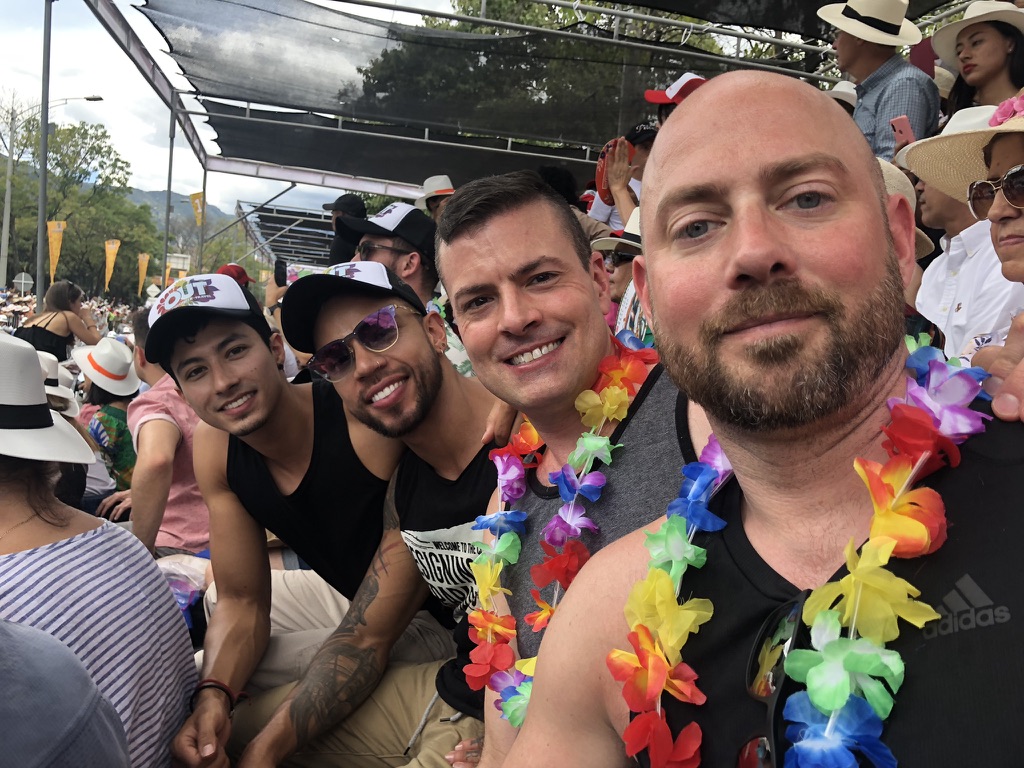
It’s important to do the extra research to look into healthcare and other factors that will hopefully ensure an easier transition to your temporary or long-term home country. However, finding a community and establishing a network of people to help you sort through your burning questions before making a move abroad is just as important.
Fortner told us, “I don’t think we could have done it without knowing a few people here. I mean, even when I moved from Michigan to DC, it was a good year before I met a group of friends, and I spoke the same language. So, knowing people here (and English-speaking people) before we moved was important.” Even though Spanish is not his native language, he told us that Duolingo was helpful in learning key phrases, but he firmly believes that immersion is the best way to pick up the local dialect and slang.
Fortner and Powers have been living abroad in Medellín for almost five months now. So, we asked how it’s been going so far, and Fortner gave a candid response, “It’s been very stressful, but I still feel like it was the right thing to do. There’s still the option to come back to the US once we get through the visa process. We’ve made sure that we have options. So, there are escape routes, if you will, just in case it doesn’t become as magical as we thought. Right now, it’s stressful, but we are satisfied with our decision, especially when we see the temperatures in DC.”
Get advice, tips, and inspiration to help you make all the important decisions to ensure that your transition to another country is a little easier. Take a look at more firsthand accounts of LGBTQ+ Americans living abroad, the best places for gays to retire, a 60-day pre-move checklist, and nine tips you should know before you move to another country.



